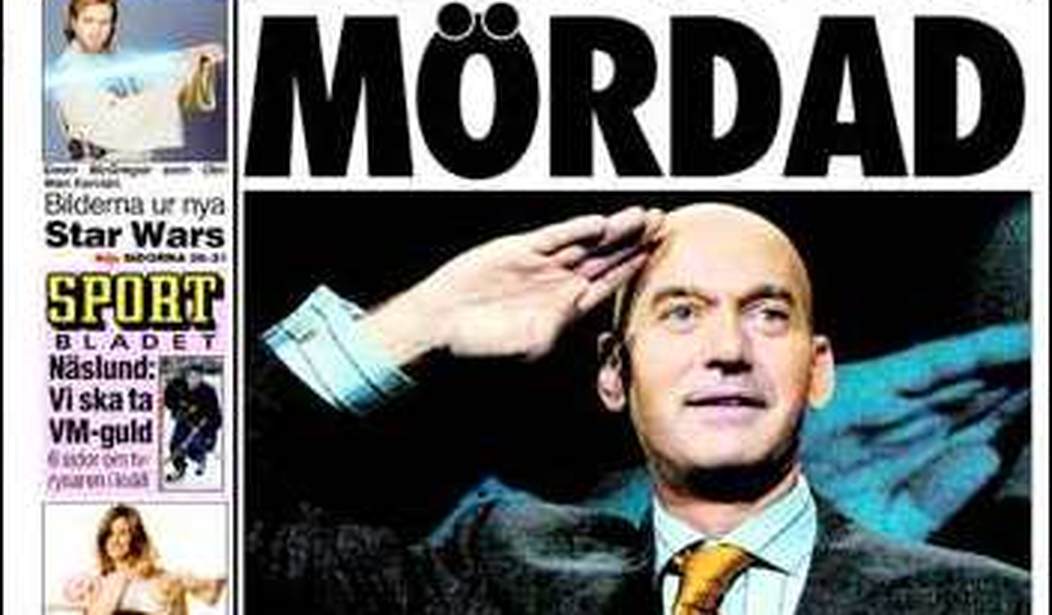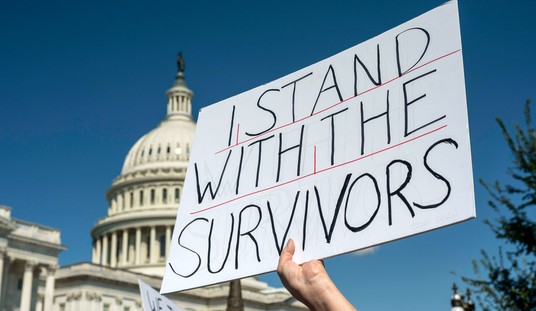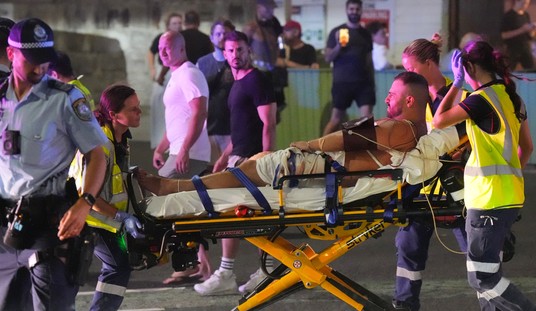Today, Ayaan Hirsi Ali is taking America by storm and many commentators are struggling to explain her instant success following the publication of her recent biography. As they do they reconstruct her creative partnership with Dutch moviemaker Theo van Gogh, something that directly caused the latter’s death and eventually forced Hirsi Ali to pursue a new career on this side of the ocean. Yet it would not be a stretch to argue that if it hadn’t been for Pim Fortuyn – murdered five years ago today – that Van Gogh would still be alive and that Hirsi Ali’s would still be producing dull policy papers for the Dutch Labour party. Both however had a unique opportunity to opt for an uncharted course.
Every political rupture, every shift needs a change agent, a person brave enough to defy conventional thinking and embark on a mission that — even if it fails — will stand as a beacon for future disciples. In America Barry Goldwater rolled the dice and didn’t quite make it, but Reagan in the end benefited from his trailblazing effort.
So it was in the placid, structured and overly politically correct Dutch world where concepts such as success, ambition and renewal were relative unknowns or if they emerged, were met with deep resistance. And although Pim Fortuyn was to some extent part of the Dutch establishment, his ideas, style and tastes were a tad too rich and unconventional for the famed Dutch consensus. Fortuyn was rebuked by all parties – from left to right – and he consequently started his own party, without any constraints, something which probably suited him best. His struggle as a gay man that grew up in a Catholic household in the 1950s had probably given him the courage and raw individualism required to pull off a mission of this nature.
As Fortuyn saw it, provocation and a resulting ‘hefty debate’ were the essential tools to disrupt complacency and find alternative solutions to the challenges of a global and rudderless new century. Books like “Without Public Sector Employees” in a nation governed by pampered and firmly ensconced public servants and “Against the Islamization of our Culture” (in 1997, no less) in a country deeply committed to political correctness, were the opening shots of a much broader campaign.
While Fortuyn’s key strengths were arguing about less government with more room for the private sector and curbing immigration into a nation that was “full”, Fortuyn’s passion and sharp debating skills were above all fueled by an intense dislike of the vested order. The establishment was his real target. Not only had it rebuffed him more than once, he was on an intellectual level able to demonstrate how vacuous it had become. This solidified his passion and support and it enabled him to draw followers from all layers of society.
In a memorable debate the leader of the Labour Party pointed to the Dutch economic success story of the 1990s which had recorded unprecedented low unemployment figures. It was a classic and often convincing campaign argument, yet it was all Fortuyn needed to turn it around and make his point: “the government isn’t in the business of employment, the market is. You’re in charge of the public sector and that’s where you’ve failed”. In one stroke he had firmed up his popularity in the business world, but also among the less fortunate who could see that the public sector was no longer delivering adequate health and social services.
And yes, his momentum grew after 9/11, an event which former Dutch Labour prime minister Wim Kok acknowledged had blindsided everyone, apart from Fortuyn. Long before radical Islam was on the radar, Fortuyn had defined it, written a book about it and pointed to the need to confront it. This of course was his Achilles heel in a nation married to politically correct respect and institutional multiculturalism. No longer able to challenge Fortuyn’s sound economic logic, his clarity and compelling style, his opponents set out to demonize him with a vengeance, encouraged by most established politicians who had come to realize and fear Fortuyn’s potential at the ballot box. The media happily channeled the negative attitudes to Pim’s growing political momentum and that helped create the fertile ground in which the killer could operate. While immigrants were not the centerpiece of his campaign, Fortuyn’s enemies defined it in such a way that it was, and negatively so. No one could have expressed this lethal collusion of established players better than Fortuyn himself in this video, shot some six weeks before his death:
Translation:
FORTUYN: If you see what I get in my mailbox from time to time, in terms of threats and so on, that doesn’t exactly cheer you up. And the Dutch Government, and this I think is a ‘bloody shame’, helps in creating a climate in which I am demonized. And if something were to happen to me – I am glad that you give me the opportunity to say this – if something were to happen to me, then they are responsible too. And then they can’t just say, ‘well, it wasn’t us committing the attack’, no, you have created the climate in which the attack took place and that has to stop.
INTERVIEWER: Because it is …
PUBLIC: Applauds, one person boos
FORTUYN: (in response to the booing person and referring to being pied days earlier at his book launch): More pies? Bring them on!

Fortuyn’s killing devastated and angered many. But it was Theo van Gogh who unofficially took over the role of politically incorrect firebrand in Holland. His fury over Fortuyn’s assassination prompted him to take his commentary and verbal attacks to an unprecedented and, as it turned out, lethal level. The fractured political situation after the murder turned Hirsi Ali into a rare electoral asset that was quickly seized by the right of center free-market party. Despite the accomplishments and influence of both, they became one-issue derivatives who benefited from the new openness which was a direct result of Fortuyn’s pioneering efforts.
When asked in an interview about death Fortuyn emphatically stated that you can influence the way in which you die and that most people more or less die the way they lived. Being shot in broad daylight shortly after another media appearance does indeed seem to reflect the controversies he caused while he was alive. His mother had presaged events almost four decades earlier shortly after JFK’s death by informing the young Pim that he might one day die as tragically as his political hero. To Fortuyn, JFK represented change and hope and a journey out of what he perceived to be the overly conservative and uninspiring 1950s. In an ultimate twist of fate, he also became an icon for those that were hoping to make a break with decades of convention and politically correct orthodoxies.
Today, five years after his tragic death we need to remind ourselves once more that it takes unrefined individual nerve to challenge ingrained political and social beliefs. Pim’s mission lives on and his unique legacy stands, in Europe and beyond.
Pieter Dorsman’s other writings about Fortuyn, his death, his murderer’s trial and legacy can be found here.









Join the conversation as a VIP Member